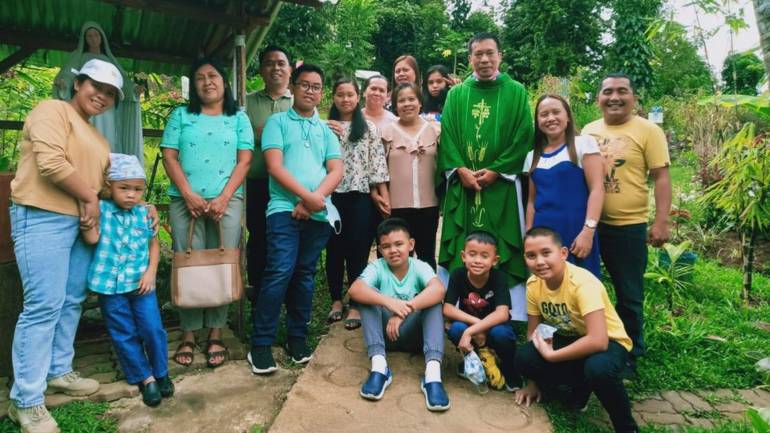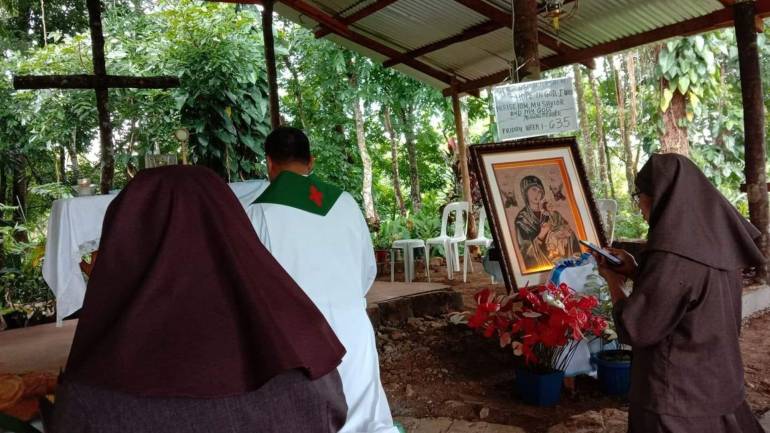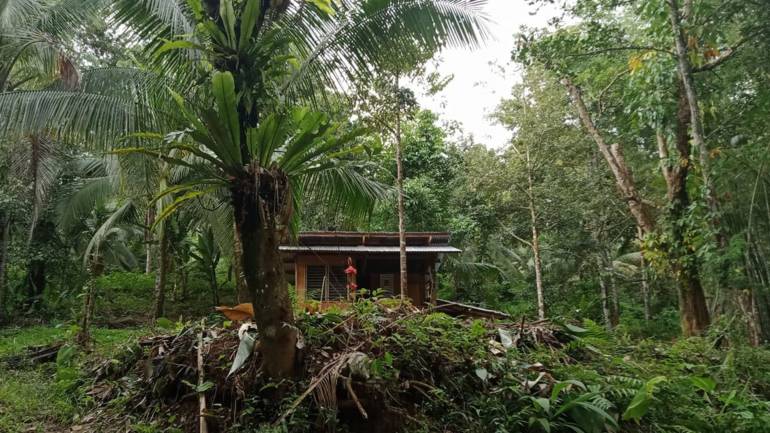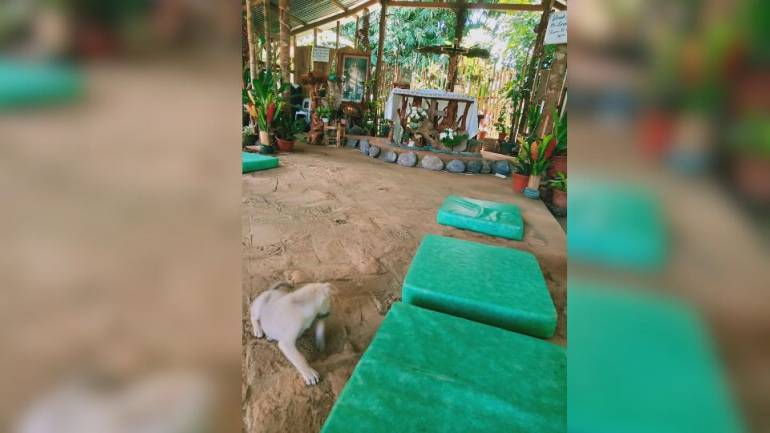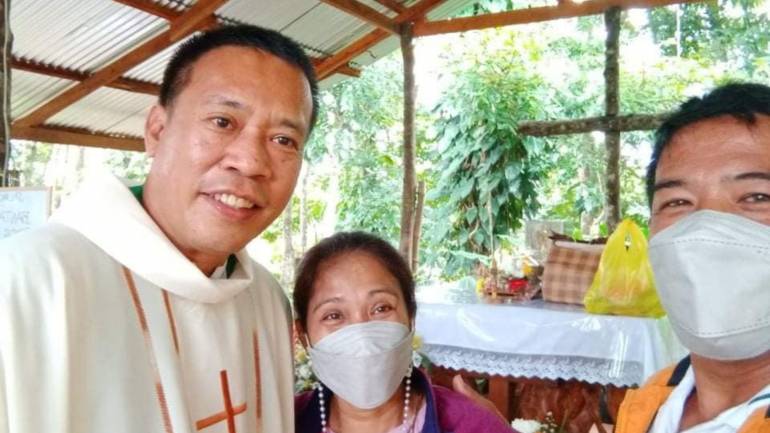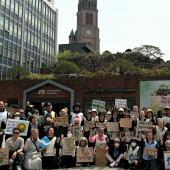How a religious-run farm in the Philippines celebrates God’s creation
Pope Francis introduced an eye-opening document about the important role of the Church in modern times through his 2015 encyclical about the environment, Laudato Si. Emphasizing humans' role in stewardship and exploring the inspiring life of Saint Francis of Assisi, the Holy Father called on a collective action among the faithful to take care of God’s creation amid the worsening problems of climate change and global warming.
This groundbreaking document led to the Catholic Church adopting the Season of Creation, the rise of ecologically centered dioceses and parishes, the more progressive movement towards nature preservation, and the pope’s second document about the environment, Laudate Deum.
The pope's initiative served as inspiration for a religious organization in the southern Philippines province of Mindanao. Therefore, they have dedicated themselves to celebrating God’s creation by embracing a modest rural life in full harmony with other people.
Our Lady’s Hermitines in Lasang, Davao is a “colony of hermits” brought together by their five-fold mission I ECHO: Intercessory Prayer, Earth Care, Companioning Searchers/Pilgrims, Hospital Caring, and Ora et Labora (Prayer and Work). Looking after 6.5 hectares of land gifted with natural beauty, they actively respond to God’s call of stewardship every single day.
A Modest Home
Before becoming a full-fledged group, Father Eugene Vincent De Jesus, OLH was the sole caretaker of the land.
“It was an offshoot of a call within a call,’” he said. “But God started to provide kindred souls.”
The place became a melting pot of people from different places and congregations. On June 5, 2010, Our Lady’s Hermitines was officially founded, which coincided with the observance of World Environment Day.
Fully adopting the hermit lifestyle, each one of them lives in individual huts, technically called a cell.
By raising different kinds of crops, Our Lady’s Hermitines are assured of food sustainability.
“The way the environment of the Hermitage is designed presents our advocacy,” said Fr. De Jesus. “We also integrate awareness of care for the earth into every activity we do. We showcase a food forest in the Hermitage [and] practice a lifestyle of permaculture.”
They also take care of various animals. Fr. De Jesus said: “We have few cows, sheep, chicken, turkey, geese, and rabbits. We integrate them into our food forest. We have pet dogs and cats.”
On March 25, 2021, another group was founded named Mary Mediatrix Hermitage, which is based in the Diocese of Kidapawan.
A cradle of spirituality
Alongside their work on taking care of the earth, Our Lady’s Hermitines keep their hearts burning in praising and glorifying the Lord.
“Being hermits, we have regular designated time for prayer and work daily,” Fr. De Jesus said. “Thus, being with people has a specific purpose & time too. We always safeguard our time for silence, prayer, and work without saying that people are secondary and are unimportant.”
Despite having individual huts, they go out and come together whenever the Holy Mass is celebrated.
They have two chapels within the hermitage. The first one is dedicated to Saint Joseph the Worker, which is open all the time and can accommodate 150 people. The other one is called the Chapel of Yeshua, a perpetual Eucharistic adoration chapel reserved for the hermitages that can fit 200 individuals.
A mission to care
Although they have embraced the hermit lifestyle, they go out of their way to lend a helping hand to the people living near their land, making sure their blessings are also enjoyed by their neighbours.
“We plant and raise animals for our food sustainability. If we get more, we share them with whoever needs them,” Fr. De Jesus said. “For those materially capable, they pay us for what we share. Our livelihood is not primarily for profitability but for sustainability.”
They also venture to neighboring farms to share not only their produce but also a far more precious offering: the Word of God.
“Since we arrived here… we [are evangelizing] them to do farming that nurtures our Mother Earth,” said Fr. De Jesus.
He also shared about their open house events held several times a year, which welcome outsiders who want to see and spend some time on their humble farm.
“We open the Hermitage not only for people to pray but also for people to see that there is such ‘A Hermitage With a Farm & A Farm With A Hermitage,’” he said.
They even allow their chapels to be visited by the faithful, even the adoration chapel usually reserved for the hermits, during these open house events.
A unique community in a fast-paced world
Amid the rapid globalization and digitalization, Our Lady’s Hermitines persevere in taking care of God’s creation through small acts of love.
As someone constantly exposed to the natural beauty of the world and the silence of the earth, Fr. De Jesus hopes that humanity will start to eliminate their anthropocentric mindset and bring down the prevailing culture of consumerism.
“These two, we counter by the lifestyle we live, espouse, and witness inside the hermitage,” he said.
May the hopeful light of this small group of individuals enlighten the minds of every single person on earth and finally make the important first step towards saving the environment, wherein God intended everything to be inherently good.
Radio Veritas Asia (RVA), a media platform of the Catholic Church, aims to share Christ. RVA started in 1969 as a continental Catholic radio station to serve Asian countries in their respective local language, thus earning the tag “the Voice of Asian Christianity.” Responding to the emerging context, RVA embraced media platforms to connect with the global Asian audience via its 21 language websites and various social media platforms.





